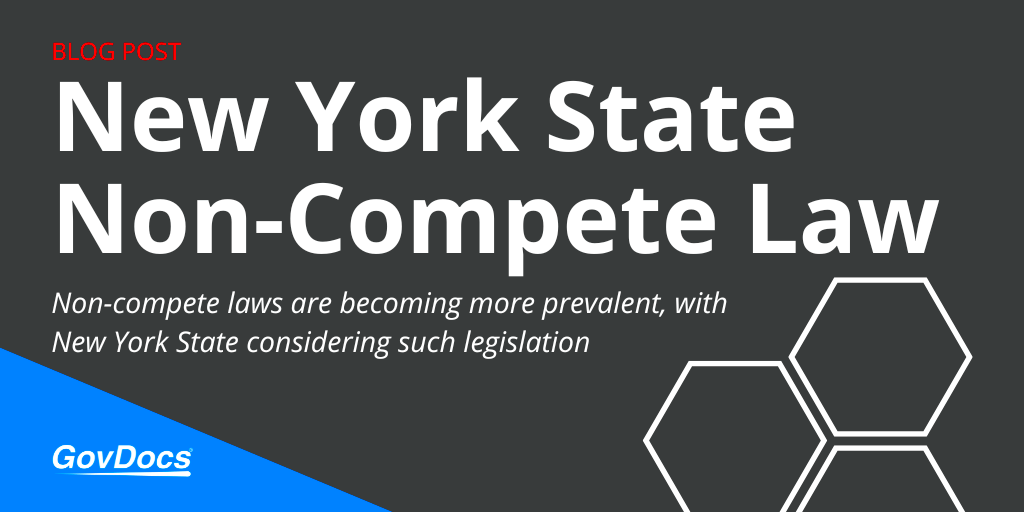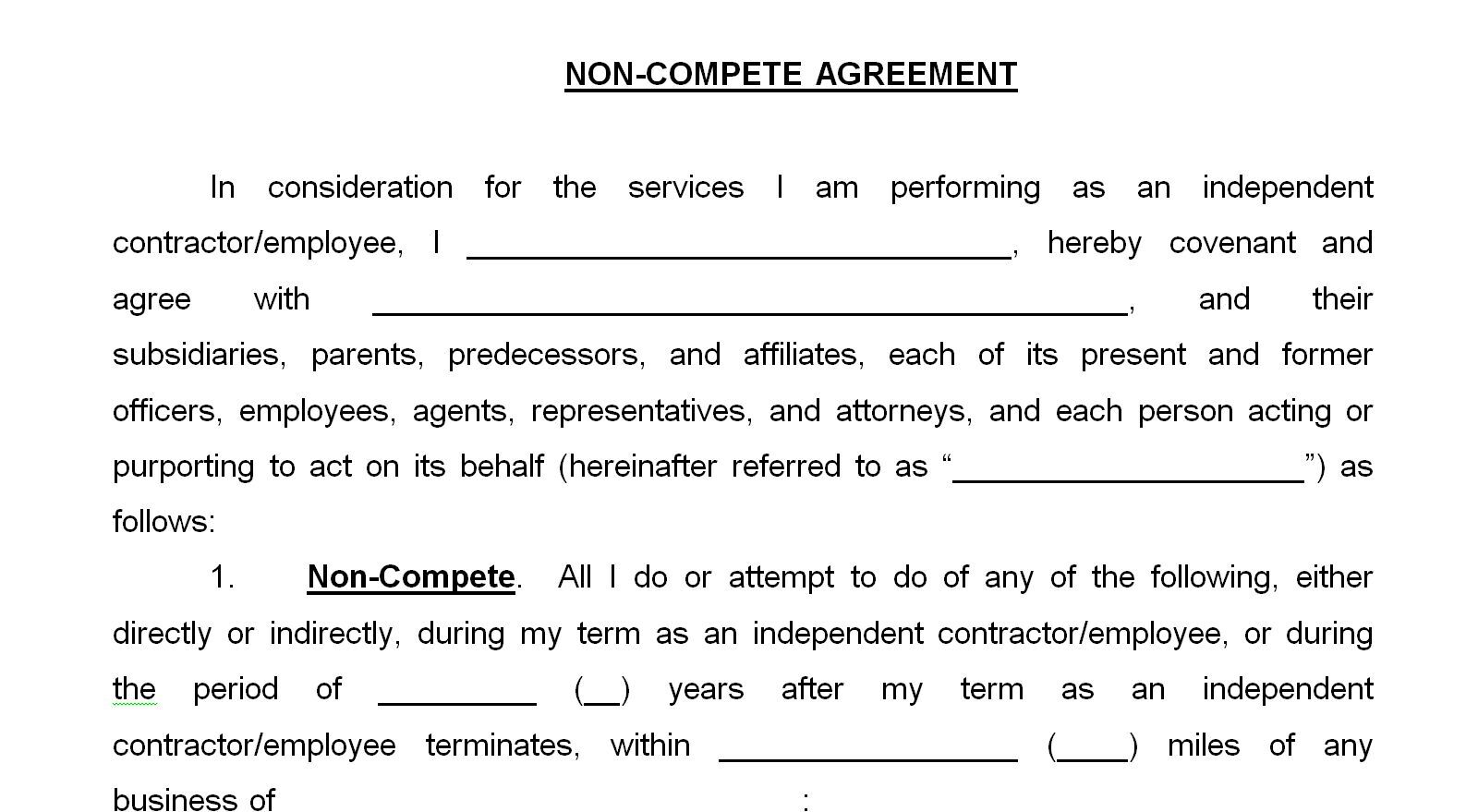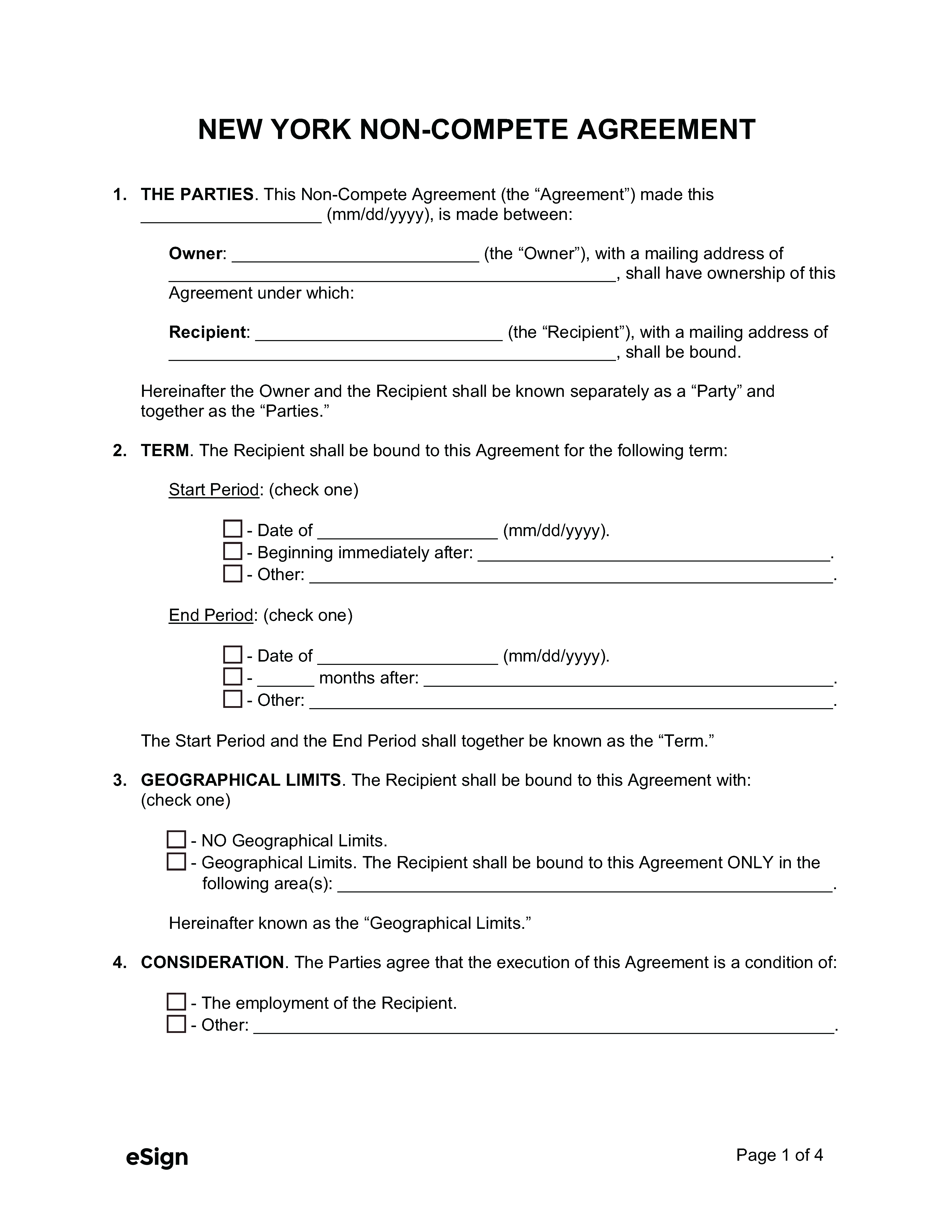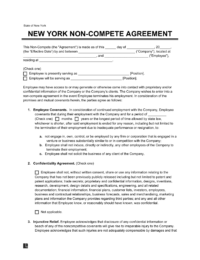A Guide to New York Non-Compete Law
Non-compete agreements are contracts that restrict employees from working for competitors or starting their own businesses in a similar field after leaving a job. In New York, these agreements are common, but they come with specific legal guidelines. Understanding how these agreements work is crucial for both employers and employees.
In New York, a non-compete agreement must be reasonable in scope, duration, and geographic area. If an agreement is overly broad, it may be deemed unenforceable by the courts. Therefore, knowing the nuances of these agreements helps parties understand their rights and responsibilities.
Key Elements of Non-Compete Agreements

Several key elements make up a valid non-compete agreement. Here are the essential components:
- Reasonable Duration: The agreement should specify a reasonable time period during which the restrictions apply. Typically, this can range from six months to two years.
- Geographic Scope: The area where the restrictions apply must be clearly defined. A vague geographic limitation can lead to unenforceability.
- Legitimate Business Interest: The employer must demonstrate that the non-compete agreement protects a legitimate business interest, such as trade secrets or proprietary information.
- Consideration: There should be consideration provided to the employee, such as a job offer or training, in exchange for signing the agreement.
When drafting a non-compete agreement, it’s vital to ensure these elements are clearly defined and justified to avoid legal issues down the line.
Enforceability of Non-Compete Agreements

The enforceability of non-compete agreements in New York can be tricky. Courts generally uphold these agreements if they meet certain criteria. Here’s what makes an agreement enforceable:
- Protection of Business Interests: The agreement must be aimed at protecting the employer’s legitimate business interests, like maintaining confidentiality or customer relationships.
- Reasonableness: Courts will evaluate if the terms are reasonable concerning duration, geography, and scope. An agreement that imposes excessive restrictions may be struck down.
- Not Against Public Policy: Agreements that severely limit an individual’s ability to find work in their field may be deemed against public policy and, thus, unenforceable.
Employers must be cautious when drafting non-compete agreements. They should seek legal advice to ensure their agreements align with New York law to enhance enforceability.
Limitations on Duration and Geographic Scope

When it comes to non-compete agreements in New York, two critical factors are duration and geographic scope. These limitations help ensure that the agreements are fair and do not unnecessarily restrict an employee’s ability to work. Understanding these limitations is essential for both employers and employees.
The duration of a non-compete agreement is the time frame during which an employee is prohibited from engaging in competitive activities. Generally, the acceptable duration ranges from six months to two years. Longer durations may raise red flags, as they could be deemed unreasonable. Similarly, the geographic scope defines the area in which the restrictions apply. This area should be clearly outlined and relevant to the employer’s business interests. A vague or overly broad geographic scope could make the agreement unenforceable.
Here are some key points to remember regarding these limitations:
- Duration: Ensure the time frame is reasonable based on the industry and the nature of the business.
- Geographic Scope: Clearly define the area where the restrictions apply, focusing on where the business operates.
- Specificity: Be specific about the locations and the nature of the restricted activities.
By adhering to these limitations, employers can create enforceable non-compete agreements while allowing employees to pursue their careers without excessive restrictions.
Exceptions to Non-Compete Agreements

While non-compete agreements are common in many industries, there are exceptions where they may not apply. Understanding these exceptions can help employees protect their rights and navigate the complexities of these contracts.
Here are some common exceptions to non-compete agreements in New York:
- Low-Level Employees: Non-compete agreements are often less enforceable for low-level employees who do not have access to sensitive information or critical business relationships.
- Unlawful Agreements: If the non-compete agreement restricts an employee from making a living or goes against public policy, it may be deemed unenforceable.
- Change in Employment: If an employee is laid off or terminated without cause, they may not be bound by the non-compete agreement.
- Duration and Geographic Overreach: Agreements that impose unreasonable duration or geographic restrictions can be challenged and potentially invalidated.
It’s crucial for employees to understand their rights and consult legal counsel if they believe they are being unfairly restricted by a non-compete agreement.
Steps to Challenge a Non-Compete Agreement
If you find yourself facing a non-compete agreement that you believe is unfair or unenforceable, there are steps you can take to challenge it. Knowing how to navigate this process can help protect your career and future opportunities.
Here’s a step-by-step guide to challenging a non-compete agreement:
- Review the Agreement: Start by thoroughly reviewing the non-compete agreement to understand its terms, limitations, and your rights.
- Gather Evidence: Collect evidence that supports your case. This may include documentation showing that the agreement is overly broad or restrictive.
- Consult an Attorney: Seek legal advice from an attorney experienced in employment law. They can help you understand your options and the strength of your case.
- Consider Negotiation: In some cases, it may be possible to negotiate a modification or waiver of the non-compete agreement with your employer.
- File a Legal Challenge: If negotiation fails, you may need to file a legal challenge in court. Your attorney will guide you through this process.
Remember, successfully challenging a non-compete agreement can take time and effort, but it can ultimately lead to a more favorable outcome for your career.
Impact of New York Non-Compete Law on Employees
The non-compete law in New York significantly affects employees and their career choices. While these agreements can protect an employer’s business interests, they can also restrict an employee’s ability to find new jobs or start their own ventures. Understanding this impact is crucial for employees navigating their career paths.
Here are some key ways non-compete agreements influence employees:
- Limited Job Opportunities: Employees bound by non-compete agreements may find it challenging to seek employment in their field, particularly if the restrictions are broad.
- Career Mobility: These agreements can hinder career mobility, making it difficult for employees to advance their careers if they can’t move to competing companies.
- Job Negotiation: When negotiating job offers, candidates may have to disclose existing non-compete agreements, which could limit their bargaining power.
- Legal Uncertainty: The complexities of non-compete agreements can create legal uncertainty, leaving employees unsure of their rights and obligations.
It’s essential for employees to understand the implications of these agreements and consider seeking legal advice if they have concerns about the restrictions placed upon them.
Best Practices for Employers Regarding Non-Compete Agreements
For employers, implementing non-compete agreements can be a double-edged sword. While they can protect business interests, poorly drafted agreements can lead to legal challenges. Therefore, it’s crucial to follow best practices when creating and enforcing these agreements.
Here are some best practices employers should consider:
- Clearly Define Terms: Be specific about the duration, geographic scope, and nature of the restricted activities to avoid ambiguity.
- Justify Restrictions: Ensure that the restrictions protect legitimate business interests, such as trade secrets or proprietary information.
- Limit to Key Employees: Apply non-compete agreements primarily to employees in key positions who have access to sensitive information.
- Review Regularly: Regularly review and update non-compete agreements to ensure they comply with current laws and industry standards.
- Provide Consideration: Offer something of value, like training or a job position, in exchange for the employee signing the agreement.
By adhering to these best practices, employers can create more effective and enforceable non-compete agreements while fostering a fair working environment.
FAQ
Here are some frequently asked questions about non-compete agreements in New York:
- What is a non-compete agreement? A non-compete agreement is a contract that restricts an employee from working for competitors or starting a similar business after leaving a job.
- Are non-compete agreements enforceable in New York? Yes, but they must be reasonable in duration, geographic scope, and protect legitimate business interests.
- Can low-level employees be subject to non-compete agreements? Generally, non-compete agreements are less enforceable for low-level employees who do not have access to sensitive information.
- What should I do if I want to challenge a non-compete agreement? Review the agreement, gather evidence, consult an attorney, and consider negotiation or legal action if necessary.
- How can I protect myself when signing a non-compete agreement? Seek legal advice before signing, and ensure you understand the terms and limitations of the agreement.
Understanding these common questions can help employees and employers navigate the complexities of non-compete agreements in New York.
Conclusion
In summary, understanding New York’s non-compete law is crucial for both employees and employers. While these agreements can provide necessary protections for businesses, they must be carefully crafted to ensure they are reasonable and enforceable. Employees should be aware of their rights and the potential impacts of non-compete agreements on their career paths, while employers need to implement best practices to create fair and effective agreements. By navigating these complexities thoughtfully, both parties can foster a balanced work environment that respects individual rights and business interests.


